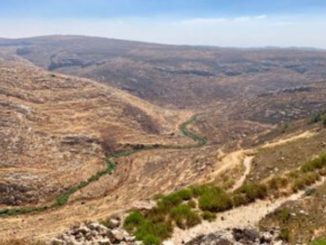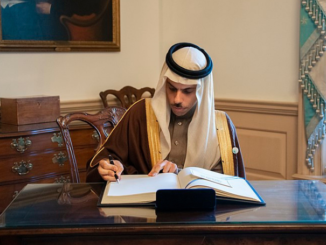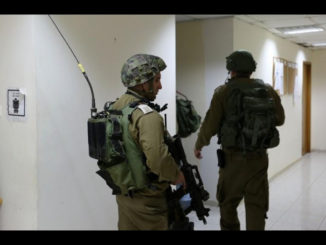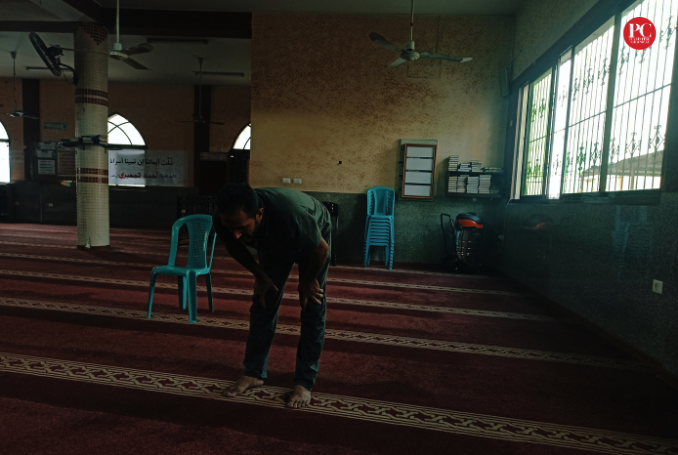
Abu Hamza is a former Palestinian prisoner. He was released from Israeli jails in 2011, thanks to the ‘Wafaa al-Ahrar Prisoner Swap Deal’.
The 51-year-old man was arrested by Israeli occupation forces in 1993 and spent 18 years behind bars. He was detained from his home in BLA when Israel still occupied the Gaza Strip, before the redeployment of 2005.
Abu Hamza was initially sentenced to one hundred and ten years in prison. He was accused of being part of the resistance.
‘A Prisoner Dies Every Day’
Before his arrest, Abu Hamza was married and a father to a baby girl, Islam. When he was in prison, the only thought that kept him going was his daughter. He never had the chance to see her take her first steps or hear her first words.
When he was taken to prison, Abu Hamza passed by his childhood mosque, which he thought he would see for the last time. He remembered thinking he would never pray there again and bid a painful farewell to one of the only peaceful places he knew in Gaza.
Long interrogations and tortures would follow, some lasting more than three days at a time.
When he was sent to a cell, he found a new family among the other Palestinian prisoners in his section. Although they all did their best to offer solidarity towards one another, the cruelty of the Israeli prison system was stronger than friendship and family.
Abu Hamza would often sit alone and think of his life. Sometimes, he wished he had died rather than been held prisoner. ‘A prisoner dies every day,’ he told me.
One day, Aby Hamza was sitting alone in his cell as his mates were in the Fora – a small space for walking allowed to detainees at certain times. He was overwhelmed by a rush of emotions.
‘I said, that’s it. I will spend the rest of my life surrounded by these walls. I’ll die here. And while I was thinking of this, tears watered from my eyes. I begged my eyes to stop. I was afraid anyone would see me crying and think of me as weak. I’m not weak.’
A Second Family
Abu Hamza explained that nothing was worse than seeing his fellow prisoners suffer unjustly. After 18 years in prison, he began to see prisoners as his second family, until this day.
One of the hardest times inside prison, according to Abu Hamza, was when one of his mates would howl with excruciating pain. No one could help him. They would call the jailer, but no one would answer. Many people suffered serious ailments, ranging from chronic back pain to much worse.
Abu Hamza’s health suffered too. He spent five years suffering from teeth aches, and he could only treat them with salt and water to numb the pain. ‘Every time the pain increased, I put in more salt,’ he said.
Finally, after five years, the jailers allowed him to go to the hospital where they pulled out his teeth.
There were no choices in prison, either you die from a disease or you become addicted to painkillers, he told me. ‘They treat a disease that may kill you. However, if the disease won’t kill you, they give you painkillers and watch you suffer,’ he said.
Abu Hamza survived by keeping his memories alive. With every meal, for example, he remembered his mother’s delicious cooking. He could eat a chicken alone, back home, but in the prison, one chicken was divided among eight detainees. The hunger always compounded the agony and fatigue. His life was upside down, like the Maqluba his mom used to cook, he jokes, except that the Maqluba was so delicious.
“I’ve never felt worse during my entire prison time than the day we were given our freedom! I had hallucinations, and I was so afraid,” Abu Hamza told me.
The Day of the Swap
Several prisoners were informed that they would be freed in four days. They counted the minutes, fearing at every second that this was all a prank, a cruel joke with the purpose of simply tormenting them.
“What if they take us back to prison?” he agonized during those moments. “What if this swap fails and we die?”
The ‘What if’ sent Abu Hamza and his mates to the brink of madness, he told me.
On the day of the swap, the bus moved at 3 am. It moved very short distances before stopping for long periods. Abu Hamza felt the bus stop and started again tens of times.
“I felt the wheels moving in my heart,” he recalled with a heavy sigh as if reliving that moment of anxiety. They were supposed to be in Egypt at 9:30 am but by noon, they were still stranded between prison and freedom. Everyone feared betrayal, but Abu Hamza held out to see his family, and especially his only daughter.
Many years have passed since that day, but Abu Hamza can’t hide his sadness; not for leaving prison, of course, but for what was waiting for him at home.
“When I was released, my daughter had become a mother to two children,” he told me with an anguished stare. “One of the children was the age of my daughter when I was prisoned.”
‘I Dream of Soldiers Chasing Me’
Outside the prison, the reality for Abu Hamza sometimes felt like an illusion. “I would see people coming and going, talking to me sometimes, but I didn’t feel anything.” He thought he would be happy, but he didn’t feel at home. He knew nothing of his street or his home. Life outside prison seemed as though he was in a dream, even a nightmare.
“I still dream of prison. I dream of a soldier chasing me, imprisoning me, and throwing me into the torturing cell.”
Abu Hamza’s mind had become a new prison.
But he found peace praying in his old mosque, his favorite place. With a sorrowful voice, Abu Hamza asked me to pray for the prisoners he left behind.
‘Allah knows how much they suffer,’ he said.
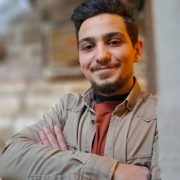
– Mahmoud Alyazji is a translator, a writer and a video editor. WANN contributed this article to The Palestine Chronicle.



